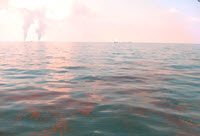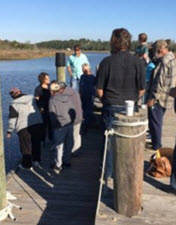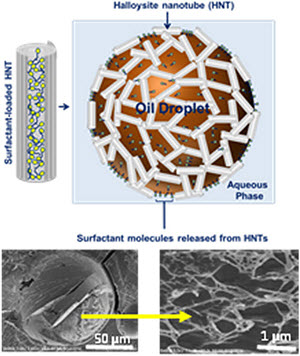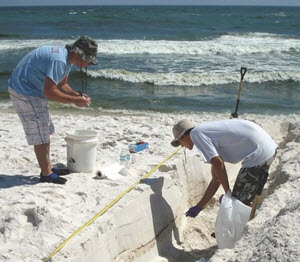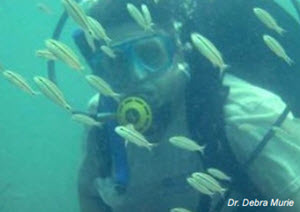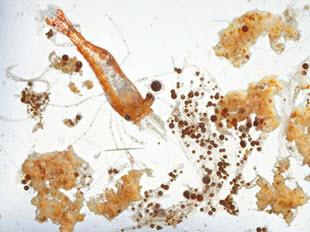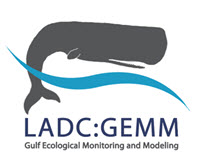GoMRI Scientists
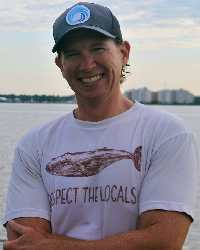
Balmer leads the Coastal Dolphin Health Assessment component of the Consortium for Advanced Research on Marine Mammal Health Assessment (CARMMHA). His group collects baseline health data on northern Gulf of Mexico dolphins, assesses potential Deepwater Horizon oil impacts, and tracks dolphins’ movement patterns using satellite tagging. Learn more about Balmer and his research here.
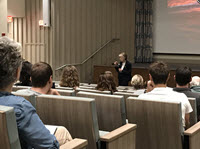
“I was not going to be stopped,” said Dr. Rita Colwell describing how she faced hurdles, many related to being a woman during her 60+ year science career, and blazed paths, including her being the first female director of the National Science Foundation. She spoke earnestly and enthusiastically to faculty, staff, and students gathered for Read More
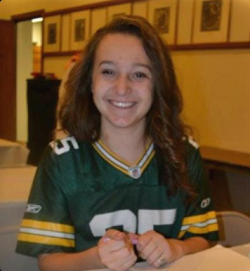
Kendall is an oceanography Ph.D. student at Louisiana State University and a researchers with the Coastal Waters Consortium (CWC). She is in the early stages of her research investigating the transport of suspended sediment in coastal Louisiana. Get to know more about Kendall, her background, and her Barataria Bay research here.

Dr. Shivarudrappa is a Coastal Waters Consortium (CWC) researcher who examines the taxonomic identification of benthic invertebrate fauna to assess how the 2010 Deepwater Horizon oil spill impacted their community. Learn more about his research and scientific journey here.
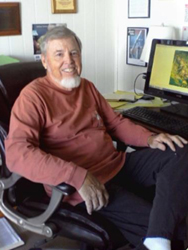
Carter is a Coastal Waters Consortium (CWC) researchers and the chief scientist for the National Center for Airborne Laser Mapping (NCALM), where he collects research-quality airborne lidar, digital photography, and hyperspectral observations for researchers. Learn more about his background and research here!

Dr. Sunshine Van Bael, principal investigator of the RFP-V project Chemical Evolution and Plant-Microbe Degradation of Petroleum in Saline Marsh Plants and Soil, and her colleagues recently hosted a series of workshops in Louisiana for nearly 140 elementary and middle school-aged kids. The workshops were part of Dr. Van Bael’s outreach efforts to teach students Read More

Mariotti is a geobiologist developing a model to predict the rate at which marshes retreat due to waves and pond formation. His research with the Coastal Waters Consortium (CWC) will help predict future marsh loss and identify strategies to reduce it. Learn more about his background and research here!
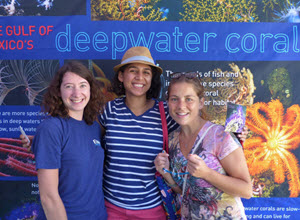
Scientists and education staff have tapped into a novel venue – football games – to reach new audiences and share ongoing research and ocean technology. The research consortium Ecosystem Impacts of Oil and Gas Inputs to the Gulf II (ECOGIG II), funded by the Gulf of Mexico Research Initiative (GoMRI), took their mobile Ocean Discovery Read More

Two postdocs, Ali Deary and Adam Greer, took turns as Chief Scientist aboard the R/V Point Sur during the Consortium for oil spill exposure pathways in Coastal River-Dominated Ecosystems (CONCORDE)’s recent Spring Campaign, while three others—Kemal Cambazoglu, Sabrina Parra, and Inia Soto-Ramos—devised the cruise plan for the R/V Pelican. Earlier in the year PhD student Read More
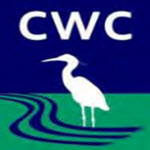
The first three years of Coastal Waters Consortium (CWC-I) began September 2011 and ended December 2015. The second three years of Costal Waters Consortium (CWC-II) began January 1, 2015 and extends until the end of December 2017. Meet some of the many researchers up-close and personal in the following links: CWC-I Scientist Spotlights CWC-II Scients Read More
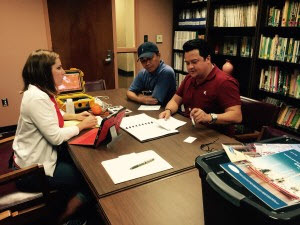
While Consortium for oil spill exposure pathways in Coastal River-Dominated Ecosystems (CONCORDE) researchers sampled the northern Gulf to determine the paths and impacts of river outflow, a pair of citizen scientists, also commercial fishers, assisted from their own vessels. Hoang Nguyen Van of D’Iberville, Mississippi, and George Barisich of Ycloskey, Louisiana—Captain Nguyen and Captain George—took Read More

Graduate student Nathan Laxague’s recent posts to the CARTHE blog describe the methods, experiences, and challenges of researchers working on the ongoing LASER expedition. You can read his entries here and here to keep up with the project’s development. Excerpt from the CARTHE Blog: “… Walton Smith is somewhere off the middle Keys, dressed to the nines with fancy Read More
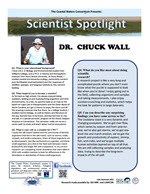
Chuck Wall has a B.A. in Biology and Environmental studies from Williams College, and a Ph.D. in Marine and Atmospheric Sciences from Stony Brook University. He works with the Coastal Waters Consortium (CWC) studying the salt marsh habitat and the community of benthic organisms that live in the salt marsh, such as worms, snails, mussels, Read More
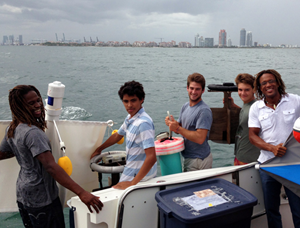
What do the Consortium for Advanced Research on Marine Mammal Health Assessment (CARTHE), the International SeaKeepers Society, and Fleet Miami have in common? Ocean research! Last September, CARTHE researchers from the University of Miami Rosenstiel School partnered with SeaKeepers and Fleet Miami to widen the reach of ocean and oil spill research in the local Read More
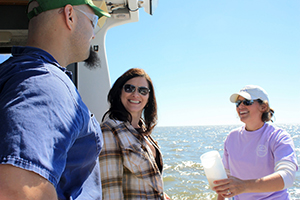
An old philosophical question asks, “If a tree falls in a forest and no one is around to hear it, does it make a sound?” Similarly, if a scientist makes an important discovery and people do not hear about it, will it matter? Scientists are conducting research about oil and other impacts on coastal marine Read More
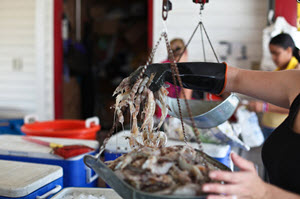
Many people outside of the Gulf Coast region are not aware of the large population of Vietnamese residents who live across this area, in concentrated communities from Texas to Alabama. Arriving as refugees during and after the Vietnam War, they settled along the Gulf Coast to work in the booming commercial fishing industry. Today, the Read More
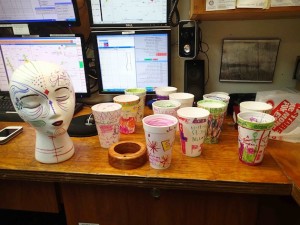
Laura Spencer, a graduate student in Dr. Steven DiMarco’s lab at Texas A&M University, took cups from three classrooms with her on the Gulf Integrated Spill Research Tracer cruise (G03) in the Gulf of Mexico. The cups were lowered in the water on one of the CTD casts. When the CDT was raised, the 5 Read More
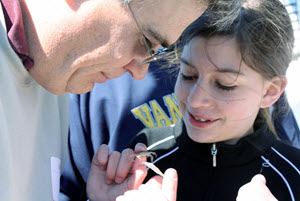
“My mom would love this boat ride.” “I wish my child could walk the marshes.” Murt Conover, Senior Marine Educator and Aquarist with the Coastal Waters Consortium (CWC), often hears comments like these when leading teacher and student groups at the Louisiana Universities Marine Consortium (LUMCON) facility. She thought it seemed like a “no brainer” Read More
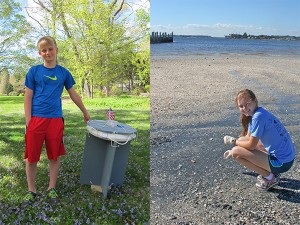
Scientists conducting GoMRI-funded oil spill research take their mission regarding society seriously: They employ cutting-edge technology to collect and analyze data using rigorous scientific parameters and publish their findings. But there are other ways these researchers define success, like working with students. When young students seek answers to scientific questions and contact them, these scientists Read More

